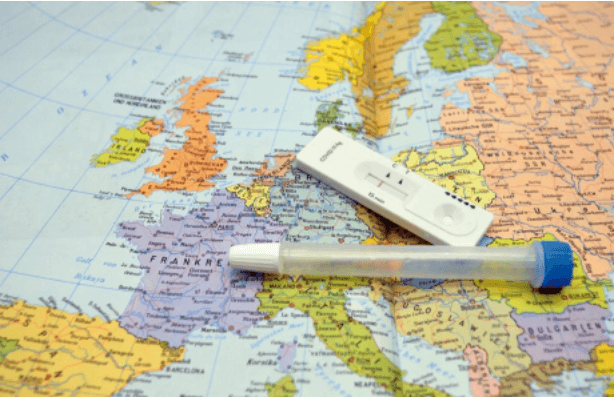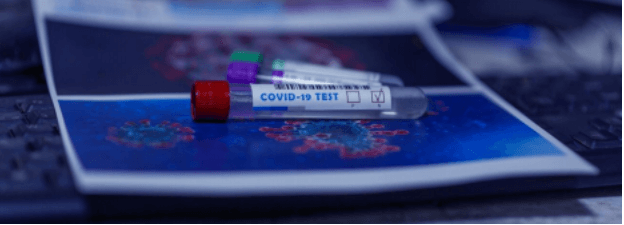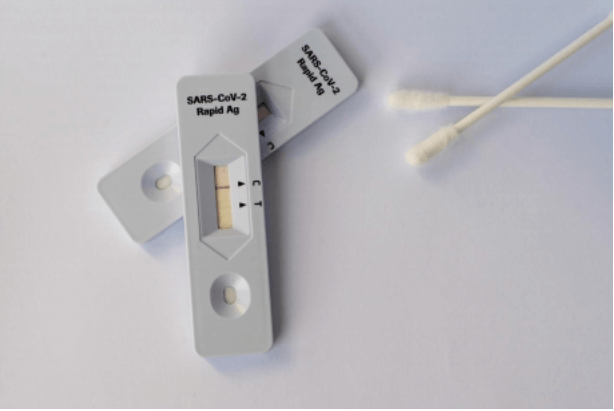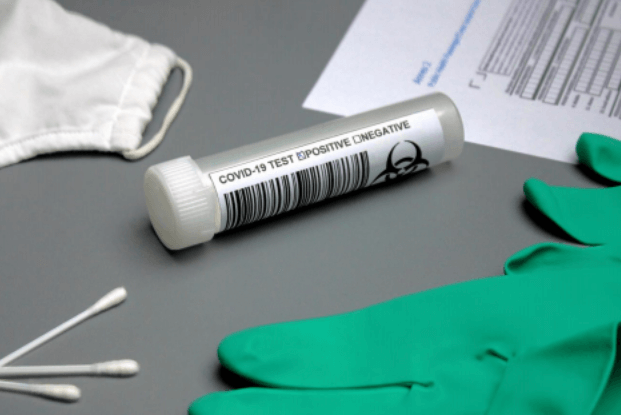
The Sars Cov 2 virus initially started the Covid-19 pandemic, which was then reported to cause at least 211,000 deaths worldwide by April 2020. It affected billions worldwide by increasing the morbidity and mortality rates and shook the economy as a lot lost their jobs and livelihoods. Even since the numbers started rising, a majority of laboratories, universities, and professional health experts have been looking for efficient ways to detect the virus to prevent its further spread. (1)
Those who are infected with the virus do not always present with symptoms, and those presenting symptoms do not present with characteristic clinical manifestations. The variations of the signs and symptoms of the Covid-19 virus are what make its detection difficult, especially at its early stages – since this is when the symptoms are found to vary the most. This is why it is imperative that different forms of Covid diagnostic tests are planned and introduced, which may not only allow an efficient diagnosis at the clinic but at the comfort of the test taker’s home as well.
Currently, two main types of Covid tests are available: the Molecular Assay Based Covid-19 Test and Serological and Immunological Assays.

The Reverse Transcriptase Polymerase Chain Reaction is considered a gold standard for the diagnosis of the SARS-Cov-2 virus. It works by multiplying the small quantities of the viral genome which may be taken from the person being tested. The samples for this particular test are recommended to be taken from the upper respiratory tract by using the swab method. However, some may even take a sample from the individual’s stool, serum, or secretions of the eye. (2) Some new technologies have also allowed the use of saliva secretions instead of the more traditional sampling methods mentioned above. These are not only proven way less painful for the individual being tested but are also much quicker. (3) The Reverse Transcriptase Polymerase Chain Reaction can be conducted as either a one-step or a two step procedure.
One Step: This is also referred to as the real-time reverse transcription-polymerase chain reaction. It requires only one tube which contains the necessary primers to allow the conductance of the reaction. Since this is much quicker, it is now considered the preferred approach by many.
Two-Step: Since it is a two-step reaction, it uses more than one tube where the reverse transcriptase and amplification reaction are conducted separately. The benefit of the two-step procedure over the one-step procedure is that it is much more sensitive to slight changes and offers higher flexibility. Moreover, unlike the one-step procedure, this also uses much less starting material and allows the quantification of multiple targets. (4)
The Isothermal Nucleic Acid Amplification test allows the application of viral RNA at a constant temperature, unlike the Reverse Transcription Polymerase Chain Reaction, which works on multiple temperature variations and specifically designed thermal equipment. The Isothermal Nucleic Acid Amplification systems include the Reverse Transcription Loop-Mediated Isothermal Amplification, Transcription Mediated Amplification, CRISPR Based Analysis, Rolling Circle Amplification, Nucleic Acid Hybridization using Microarray and Amplicon Based Metagenomic sequencing. (5)
The Reverse Transcription Loop-Mediated Isothermal Amplification allows the relatively cost effective and quick diagnostic testing of the SARS Cov-2 Virus. This system works by detecting
the viral RNA in the sample by enabling the combination of Loop-Mediated Isothermal Amplification with the Reverse Transcription Reaction. The amplified product can then be seen through turbidity measurements, photometry and it may also be detected using intercalated dye fluorescence in real-time. (6)
The transcription-mediated. The amplification procedure allows much more efficient detection of certain parts of the viral genome as compared to the traditional Reverse Transcription Polymerase Chain Reaction. This is because this technology enables the rapid amplification of the virus, which allows its easier detection. (7)
CRISPR stands for Clustered Regularly Interspaced Short Palindromic Repeats, and it belongs to a family of sequences of nucleic acids found in bacteria and other prokaryotic organisms. The CRISPR-based assays work by recognizing these nucleic acid sequences and cut them using certain enzymes known as Cas9, Cas12, and Cas13 – more commonly called the CRISPR associated enzymes. (8)
The Rolling Circle Amplification is one of the more popularly known viral detection methods as it allows the amplification of up to 109-fold in each 90 minutes cycle in isothermal conditions. Unlike the false positive tests, which may be occasionally encountered with other tests like PCR based assays, the Rolling Circle Amplification tests are much more accurate. They also require a minimum concentration of reagents to work. Even though this is hypothesized to be an effective diagnostic system for the Covid-19 virus, it has not yet been introduced into the market for this purpose.(9)
The Nucleic Acid Hybridisation using Microarray tests allows the quick detection of the Covid-19 virus, which has to lead them to gain popularity over the past few years. These tests work by producing cDNA from the RNA of the virus by using a reverse transcription procedure. They also facilitate the labeling of the produced cDNA with precise probes, which are then loaded to microarray trays. (10) What makes these tests different is their ability to detect the mutations in the viral genome and allow the accurate detection of as much as 24 single nucleotide polymorphisms which are caused by the mutations.(11)
The Amplicon Based Metagenomic Sequencing uses two different approaches for the detection of the viral genome like Covid-19 virus including:
∙ Amplicon Based Sequencing: This facilitates molecular epidemiology, contact tracing, and conducting studies of the evolution of the virus.
∙ Metagenomic Sequencing: This allows the detection and evaluation of the infecting microbiome and its background.
The dual approach of the viral detection offered by this system allows accurate assessment of the infecting virus, its rate of mutation, and its ability to combine with other coronaviruses, infecting humans.

Serological tests are conducted by analyzing the blood plasma and serum of the individual being tested. However, contrary to previous times, these tests may also be conducted using a wider range of samples, including sputum, saliva, and other body fluids, according to the patient’s preferences and the doctor’s
expertise. The tests detect the presence of the two types of antibodies that may be produced in response to a viral antigen in the body called IgM and IgG. The detection of these antibodies also opens the possibility for these tests to be used for vaccine development and evaluate the antibody response of the body for the Covid-19 virus in the short term and long term. The method by which these may be detected includes the Enzyme-Linked Immunosorbent Assay, Neutralization Bioassay, Immunochromatographic Lateral Flow Assay, and certain chemosensors.
Enzyme-Linked Immunosorbent Assay, which is also commonly known as ELISA, is a plate-based assay technique that allows the detection and quantification of different hormones, antibodies, proteins, and peptides. It can also be quantitative and qualitative in nature, depending on the requirement. The test usually takes between 1 and 5 hours to show results.
The Healgen Covid-19 Rapid Antibody Test Kits work by detecting the presence of IgG and IgM antibodies in the blood, serum, and plasma of the individual. These antibodies may be seen after at least 1 to 3 weeks after the individual has been infected.
What makes the Healgen Covid-19 Rapid Antibody Test Kit particularly special is its ability to deliver tests within 15 minutes.
The kit is available as a box of 25 tests, at a price of £99.99. Moreover, the company offers a discount of 10% to those who purchase at least 4 to 9 kits, 15% to those who buy 10 to 20 kits, and a discount of 20% is offered to those who purchase more than 21 kits.
The Lateral Flow Immunoassay is a qualitative test that lets individuals know if they are positive or negative for the Covid-19 virus. It is small and portable, which allows this test to be conducted outside the healthcare setup as well. The results from the Lateral Flow immunoassay can be obtained within 10 to 30 minutes of the test. The test works by being exposed to a fluid sample, which then flows through an immobilized viral antigen band within the test kit. If the individual is positive for the Covid-19 virus, the antibodies for the virus accumulate on the band and leads to the development of an indicator color. What makes this type of testing system particularly popular is its cost-effectiveness and the lack of training requirements.
The Healgen Covid-19 Lateral Flow Rapid Antigen Test Kits are qualitative tests that allow rapid testing for Covid-19 at a price of £6.49 per test kit. On purchase of 4 to 9 kits, a discount of 10% is offered, while a 15% discount is offered for every 10 to 20 test kits purchased. However, on purchasing more than 21 test kits, the site also offers a discount of 20%.
The Neutralisation Assays work by detecting and determining the ability of the antibodies produced by the body to inhibit the spread of the virus in the cultured cells and its effects. It usually requires a whole blood sample of the individual; however, it may also be conducted using their serum or plasma. These samples are then diluted and introduced to cell cultures. It takes almost 3 to 5 days for the test results to come; however, certain recent advances within the Neutralization assay tests have reduced this time from day to hours. (12)
The Luminescent Immunoassay involves chemiluminescence and fluorescence, which work by lowering the antibody detection limits by the specific reagents.
The Biosensor tests work by conversion of specific biomolecules into measurable readout. IT usually achieves this through different methods like optics, electricity, and enzymes.
The Rapid Antigen allows the detection of viral antigens in the samples taken from a potentially infected individual. The Antigen detection is facilitated by specific monoclonal antibodies, which allow an analysis of the sample. (13)
The Home Test Kits by Hughes Healthcare work on the mechanism of Rapid Antigen Testing and provide an affordable solution for at-home testing for the Covid-19 virus. The test kits are available at a price of
£13.99 per test kit. The site offers a further discount of 10% for anyone who purchases 4 to 9 kits, 15% for those who purchase 10 to 20 kits, and a 20% discount for those who buy more than 21 kits.
What makes Hughes Healthcare’s Coronavirus antigen rapid test popular is its ease of use and quick results. Moreover, the test is proved to be 96.8% sensitive and 97.1% specific, which leads to slim chances of any false positives or false negatives, which are commonly seen with other testing systems. (14)

Since the covid-19 tests kits that may be ordered at home are not specific to a particular individual and are activated only after the exposure to the sample retrieved from the individual. However, one test kit should only be consumed by one individual and cannot be reused.
If you have no symptoms for the covid-19 virus and have not been in any recent contact with a possibly infected individual, there is no need for a Covid-19 test. However, there are certain situations where tests may need to be conducted even in a symptomless state which include traveling by plane, visiting an old or sick individual, or if you believe you have been in prolonged contact with an infected individual.
A negative antibody test indicates the absence of antibodies for the covid 19 virus in the body. This means either the test was conducted too early and the antibodies have not yet developed in the body, or the person has not been infected with the virus.
Studies are still being conducted to understand the full extent of the immunity caused by the presence of antibodies in the system. The presence of antibodies usually indicates that the person was infected by the virus in the past, or it may also indicate a current infection.
When looking for the ideal diagnostic test for the detection of Covid-19, it is essential to keep in mind that each test type is unique and has its own sensitivity and specificity ratios. While some tests may be more accurate and take time to deliver results, the others test may allow a much quicker outcome. Still, the test has variable accuracy – hence it is up to the individual and their healthcare professional to choose a test accordingly. Moreover, since it is possible to occasionally have a false negative or a false positive with the Codi-19 tests as well, one should also consult a healthcare professional to look over their clinical and epidemiological history.
Emir Limam – E11 Group B.V. Netherlands – Fraudster
24 May 2023When to Take a Test After Covid Exposure?
30 January 2023A Rapid Antigen Test vs a Lateral Flow Test for Covid-19
30 January 2023